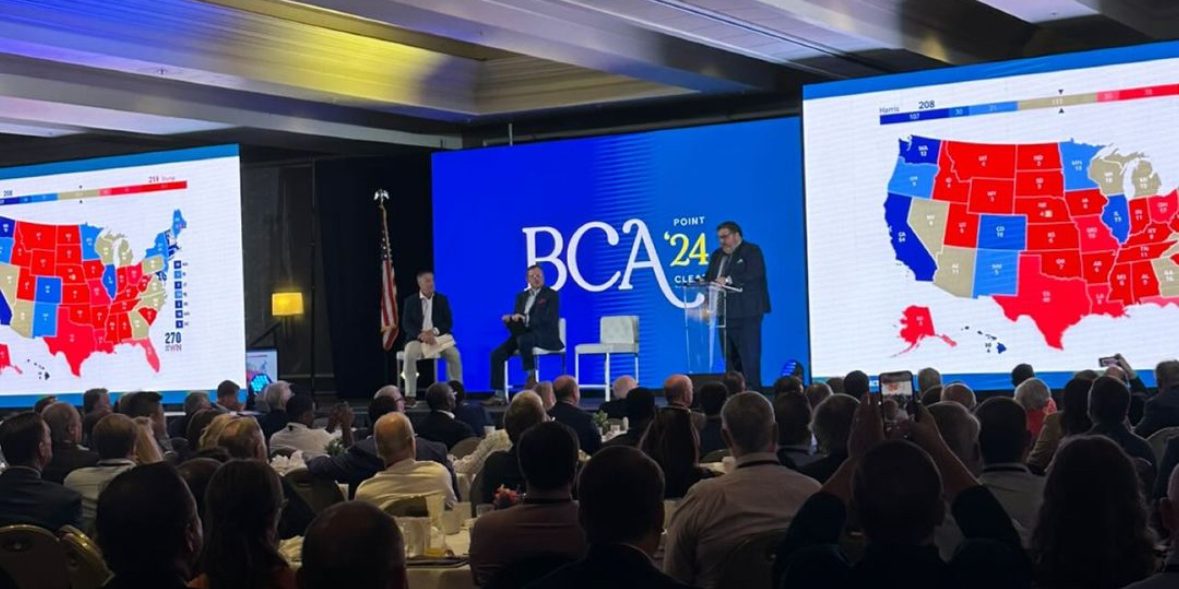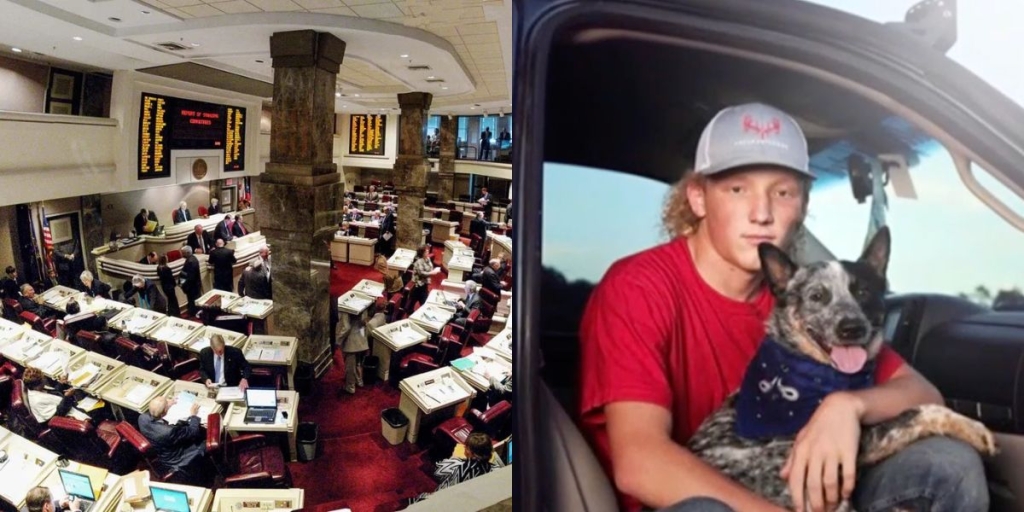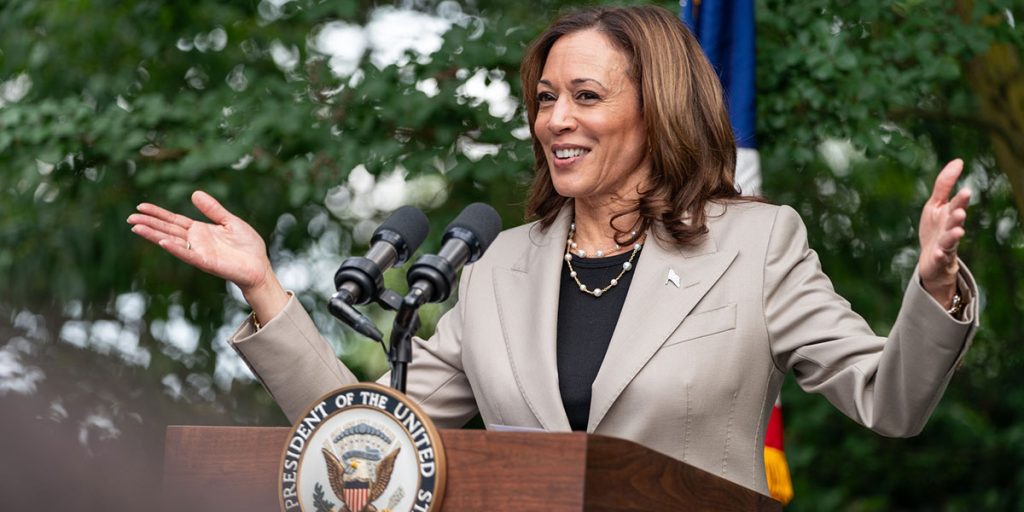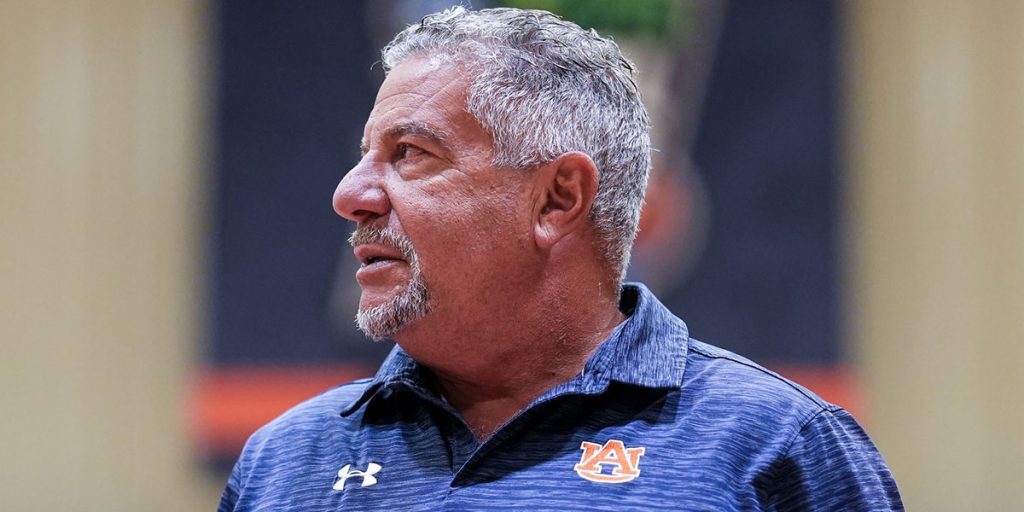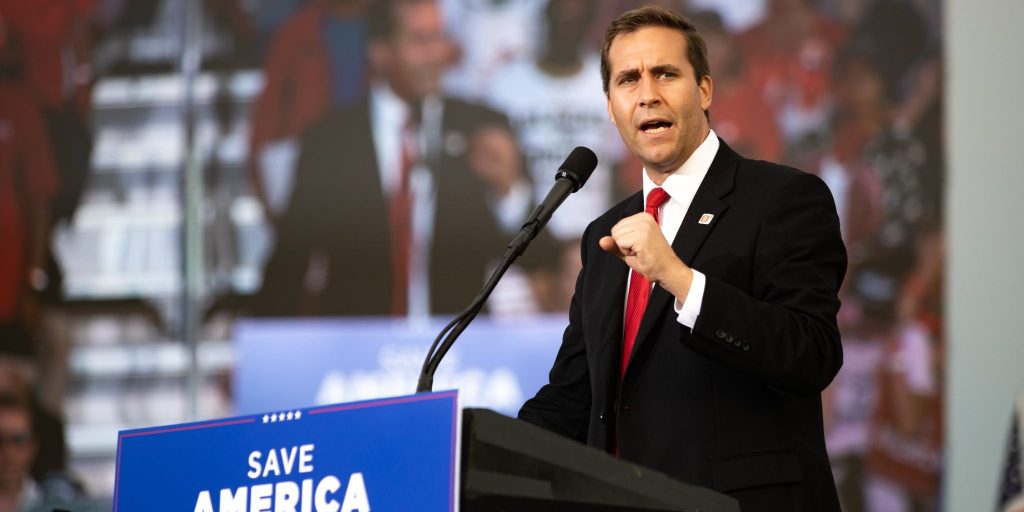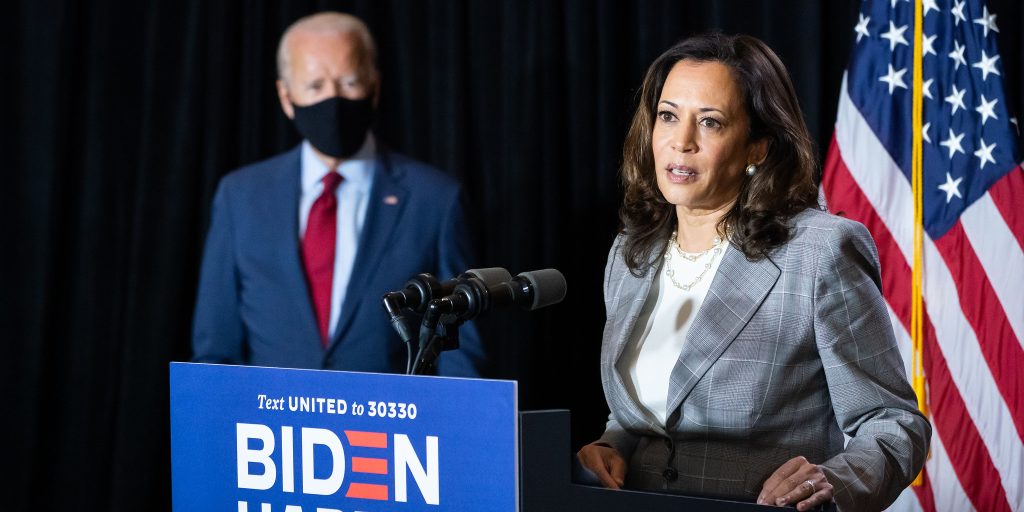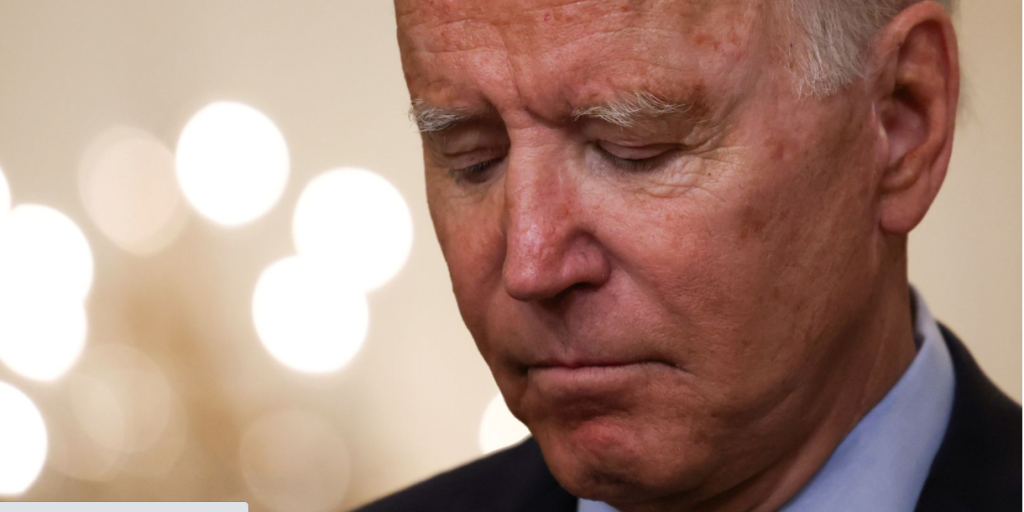Just under 90 days away from the 2024 general election, Democratic pollster Kevin Akins and GOP pollster Jim McLaughlin provided their latest analysis of the race for the White House and which party might control the U.S. House and Senate once the votes are counted.
The pollster panel is a recurring feature of the Business Council of Alabama’s annual Governmental Affairs Conference, moderated this year by Jason Isbell, Senior Vice President of State Government Affairs and Economic Development for Regions Bank.
Both McLaughlin and Akins agreed on several aspects of the road between now and November and beyond. They each think election results will not be conclusive the night of the election itself, swing states will determine the ultimate outcome, and that the next 87 days will feel like years worth of campaign politics.
Akins noted that the RealClearPolitics average shows a tight Electoral College map.
“I noticed that there were three polls out from the New York Times today that in the Rust Belt, had Harris up 50 to 46, so maybe the next time I give this presentation, some of the numbers change a little bit. But we have Trump up by about 1.8 in Pennsylvania and in Wisconsin, just a coin flip. I really think you have to continue to watch those states, Pennsylvania and Wisconsin.”
McLaughlin advertised just how close recent presidential elections have been decided. He said that while Republicans celebrated Trump’s 2016 Electoral College victory, it was decided by fewer than 80,000 votes in three key states—Michigan, Wisconsin, and Pennsylvania. Although Biden received 81 million votes in 2020, he won by less than 44,000 votes in Wisconsin, Arizona, and Georgia.
“We have Donald Trump actually ahead in the suburbs [48% to 44%], he’s up by four. We ran behind by about double digits in the suburbs back in the 2020 election. So that’s important finding,” McLaughlin said. “In terms of the battleground states, if you look at the presidential race right now, you look at an average of the polls nationally — basically tied. You look at the battleground states now, Donald Trump is up [2%].”
“Look, Donald Trump does not have to win the national general election vote in order to win the election. Remember back to 2016 he won an electoral college victory. If he probably loses the electoral the national vote by only two or three points, chances are he’s probably going to win. When you look at states like Arizona plus three in the average; Georgia, as Kevin mentioned, basically tied, trump up one; Michigan, they’ve got him at minus two; North Carolina plus three for Trump; Nevada plus four; Pennsylvania plus two, and Wisconsin minus one.”
RELATED: Nick Saban to headline BCA’s annual fundraising event
McLaughlin shared confident figures behind the GOP’s chances of maintaining control of the U.S. House and gaining seats in the Senate, but pointed out that Republicans often retain control of Congress even when they lose the national popular vote in congressional elections. On the Senate front, he predicted that Republicans could secure 51 to 53 seats, depending on how races in key states like West Virginia, Montana, and Pennsylvania play out.
During the panel, Akins described Alabama’s 2nd Congressional District as a highly-competitive “pale blue” seat that can swing from one election to the next. He said the impressive fundraising performance of the Republican candidate Caroleene Dobson, who significantly outpaced her opponent, Shomari Figures in Q2 campaign fundraising, makes that race tight as well.
“When does the spending really kick off? Are we going to start seeing August or early September ad attacks on this race? This is a race that’s kinda evenly split between Mobile and Montgomery, but there’s also a lot of swing vote and an interesting swing vote in the Columbus media market, which will be drowned with presidential campaign ads, because some our more rural counties are getting targeted by the same people trying to win Georgia,” Akins said. “So, this race has a lot of coattails.”
“Biden won this seat by about 12 points, but at the same time, our governor, Kay Ivey, won it by two points, and it was a toss-up in the U.S. Senate race with Senator Britt. So you see the ability for Republicans to really have a strong message here, and I think it’s one worth watching. I’ll just say, presidential year dynamics and my own bias, I’d probably rather it’d be Shomari Figures, but it’s exciting to have a competitive race here this year, and certainly I think one that we watch down to the wire.”
Grayson Everett is the state and political editor of Yellowhammer News. You can follow him on X @Grayson270




